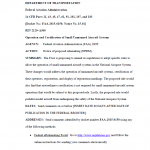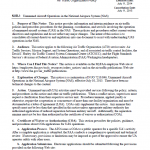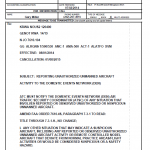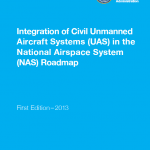
The FAA is proposing to amend its regulations to adopt specific rules to allow the operation of small unmanned aircraft systems in the National Airspace System. These changes would address the operation of unmanned aircraft systems, certification of their operators, registration, and display of registration markings. The proposed rule would also find that airworthiness certification is not required for small unmanned aircraft system operations that would be subject to this proposed rule. Lastly, the proposed rule would prohibit model aircraft from endangering the safety of the National Airspace System.



